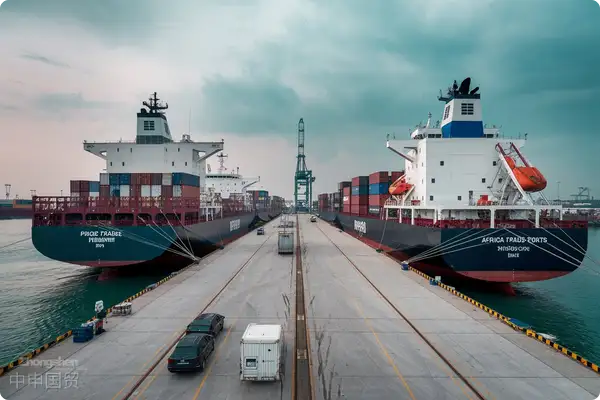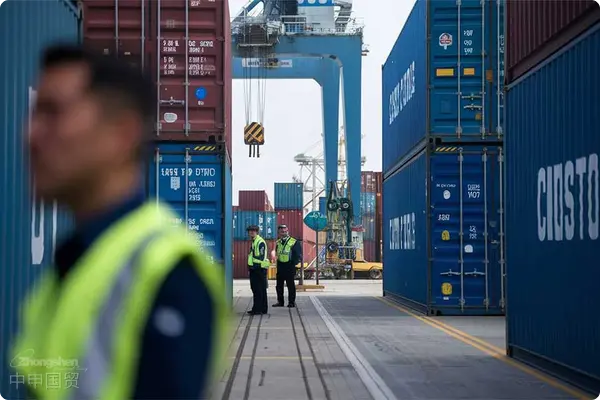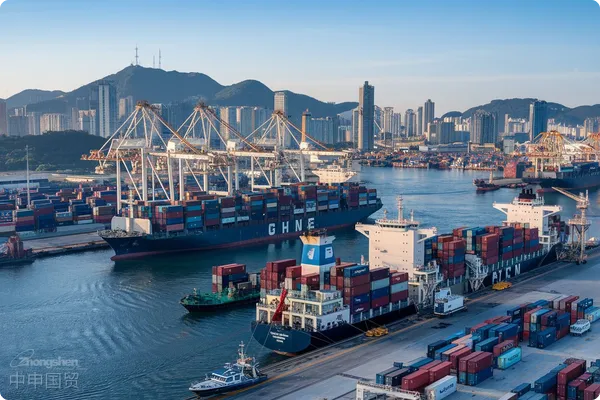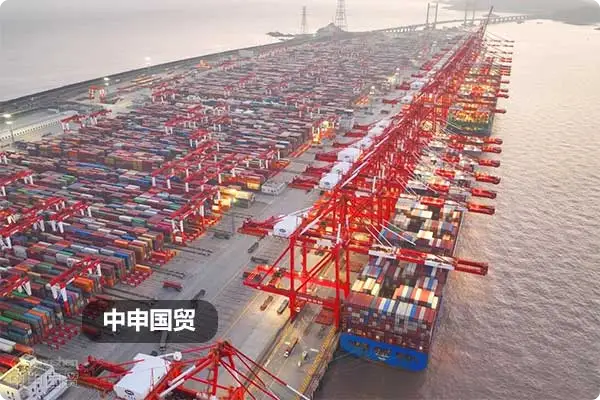- Shanghai Zhongshen International Trade Co., Ltd. - Two decades of trade agency expertise.
- Service Hotline: 139 1787 2118

In international trade, agencyExport DrawbackIt is a complex yet highly significant matter for enterprises. Understanding the consultation steps for export tax rebate agency helps businesses accurately obtain relevant information, smoothly conduct export tax rebate operations, reduce costs, and improve efficiency. This process involves multiple stages and key points that require careful and in-depth attention from enterprises or relevant parties.
I. Clarify Consultation Needs
Review of Enterprises Own Situation
Before consulting on export tax rebate agency, enterprises must first have a clear understanding of their business conditions. This includes the types of export products, as different products may be subject to different rebate policies. For example, some high-tech products may qualify for higher rebate rates, while certain resource-based products may face rebate restrictions. Additionally, enterprises should clarify their export scale, export destinations, and other information. If an enterprise primarily exports to developed countries such as those in Europe and America, customs supervision and rebate procedures may differ from those for exports to developing countries.
Identify Key Consultation Focus
Based on the enterprises own situation, identify the key issues for export tax rebate agency consultation. Is the focus on understanding the basic eligibility criteria for rebates, or is it more about the specific calculation methods? If the enterprise is new to export operations, it may be more concerned about how to apply for export tax rebate status, including the registration requirements. For enterprises with some export experience, the focus may be on improving rebate efficiency, such as avoiding errors in customs declaration forms and document preparation to expedite the rebate process.
II. Select the Appropriate Consultation Source
Choosing an Agency
Enterprises can consult professional export tax rebate agencies. When selecting an agency, evaluate its reputation and qualifications. Check past client reviews and whether it holds relevant industry certifications. For example, choose an agency with years of experience and a strong industry reputation, as they often have extensive experience handling complex rebate scenarios. Also, ensure the agencys service scope covers the product types and export destinations relevant to the enterprises rebate consultation needs.
Government Departments and Industry Associations
In addition to agencies, government commerce departments and customs authorities are excellent consultation sources. Commerce departments can provide macro-level interpretations of export and rebate policies, while customs authorities can offer detailed explanations on the relationship between customs declarations and rebates. Industry associations are also important channels for information, as they may organize training and Q&A sessions on export tax rebates for member enterprises, sharing best practices to help businesses better understand and address related issues.
III. Conduct the Consultation
Prepare Detailed Materials
During the consultation, whether with agencies, government departments, or industry associations, enterprises should prepare detailed materials. These include copies of the business license, tax registration certificate, sample export customs declaration forms, and export sales contracts. These materials help the consultation source better understand the enterprises business situation and provide more accurate answers. For example, when consulting on rebate calculations, the declared value and quantity of goods on the customs declaration form, as well as the price terms in the export sales contract, are key references.
Consultation Methods and Communication Points
Consultation methods can vary, including phone calls, face-to-face meetings, and emails. For phone consultations, briefly introduce the enterprises situation and key questions at the outset. Face-to-face consultations allow for deeper discussions, such as requesting detailed step-by-step demonstrations for complex rebate processes. Email consultations should be complete and accurate, preferably with prepared materials attached. During communication, ask questions actively and seek clarifications for any unclear points to ensure full understanding of export tax rebate agency information.
IV. Organize and Analyze Consultation Results
Information Organization
After the consultation, enterprises should organize the obtained information. Summarize the steps for export tax rebate agency, relevant policy requirements, and key considerations separately. For example, categorize the preparatory work for rebate applications (e.g., document preparation, electronic port operations), the application process (including which department to submit to and deadlines), and potential post-application review stages (e.g., review focus, possible issues, and solutions).
Risk Analysis and Response
Based on the organized consultation results, analyze potential risks in the export tax rebate agency process. If certain products face unstable rebate policies, consider adjusting export strategies to mitigate risks. If rebate audit standards are stringent, strengthen internal management to improve document accuracy and compliance. Additionally, develop response measures for potential risks, such as enhancing collaboration with agencies or conducting regular internal training, to ensure smooth export tax rebate processes and avoid unnecessary losses.
Conclusion
The consultation steps for export tax rebate agency are a systematic and detailed process. Enterprises must carefully manage each stage, from clarifying needs and selecting consultation sources to conducting effective consultations and analyzing results. Only then can enterprises fully understand export tax rebate agency matters, leverage rebate policies effectively in international trade, enhance competitiveness, and achieve sustainable development.
Related Recommendations
? 2025. All Rights Reserved. Shanghai ICP No. 2023007705-2  PSB Record: Shanghai No.31011502009912
PSB Record: Shanghai No.31011502009912










